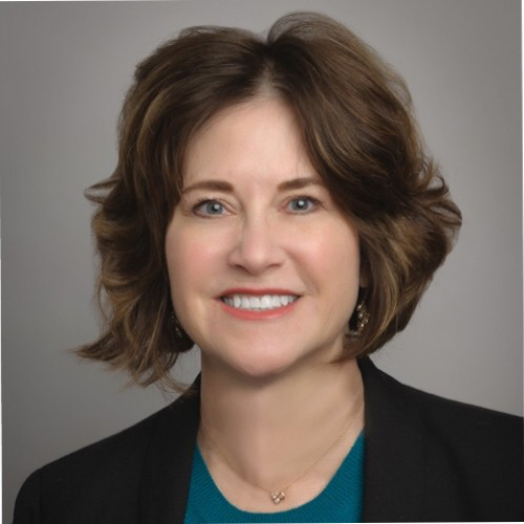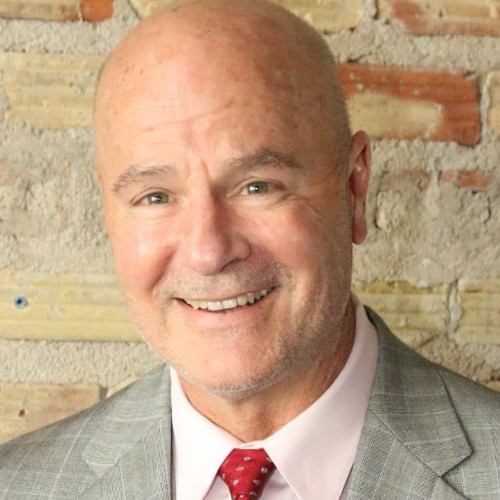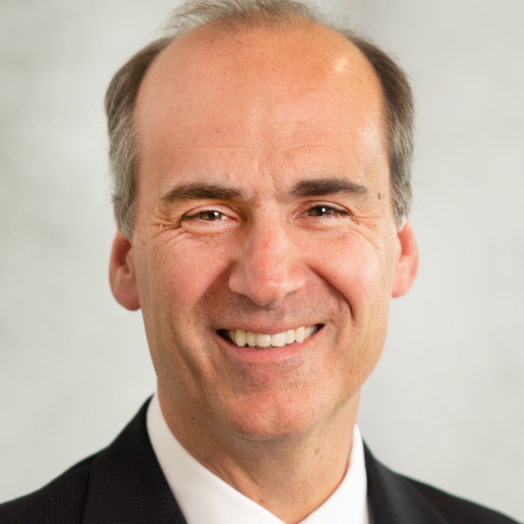











NG Healthcare Digital Summit
The COVID-19 pandemic disrupted healthcare and reinforced the need to improve physician and patient experiences, quality of care and financial outcomes.
Connect with leading Healthcare experts on business-critical challenges and disruptive technology and drive your industry forward collaboratively.
Why Attend
New connections
Build new connections with likeminded senior leaders
Business trends
Stay current with emerging business trends
Key takeaways
Downloadable and actionable takeaways
New partnerships
Accelerate key projects through meaningful new partnerships
Insights
De-risk new projects by gaining a broad range of insights
New technologies
Understand the impact new technology can make



















Trusted by
We host global organizations with the conversations that matter. That’s why we’re trusted by these top brands.
Past Programme
09:00 - 09:15
Opening Remarks
Intro & Diamond Commentary
09:15 - 09:45
Keynote
Care Model 2030
The COVID pandemic has dramatically changed the health care industry and has provided opportunity to accelerate the adoption of more effective and efficient future care models, including virtual visits and care in the home environment.
Overseeing clinical activities for one of the largest academic health systems in the nation, Chief Medical Officer and Quality Officer, Andy Anderson, MD, has unique perspective on and experience in crafting care delivery models needed for the future that address the quadruple aims in health care. With a service area of five million people spanning New Jersey, one of the nation’s most densely populated states, RWJBarnabas Health serves a very diverse range of communities, ethnicities, and demographics. RWJBarnabas Health’s partnership with Rutgers University has formed New Jersey’s largest academic health care system. Their collaboration aligns with RWJBarnabas Health’s focus on education, research, and clinical activities.
We are seeing rapid change to care models in all environments, from primary to acute care settings. While the pandemic accelerated this rapid change and the need to increase emphasis on population health and wellness, the health care consumer must be the most impactful driver towards the “Care Model 2030.” In this session, Dr. Anderson will provide a forecast of what’s coming next and how we can get from here to there. Dr. Anderson will speak to:
•Leveraging telemedicine as an extension and enhancement of in-person care rather than an avenue for “one and done” virtual visits;
•For health care consumers, the importance of building a relationship with their primary care physician, which telehealth has made even easier to do given today’s busy schedules;
•Building a hybrid framework that allows patients to stay within the system and within a comprehensive “medical neighborhood” for all of their care needs throughout their health journey;
•The role of home monitoring devices as a growing opportunity to provide care, including emerging wearable devices;
•Best practices for uniting different constituencies of providers within a shared system and strengthening internal collaboration – and the nuances between being a leader, a manager or a player’s coach; and
•The importance of investing in health care’s most valuable resource by prioritizing the physical, mental and emotional wellness of people on the front lines, enabling clinical staff to perform at their best by allowing autonomy while providing support systems.
09:45 - 10:25
Panel Discussion
Care Anywhere
Connectivity is mission critical and enabling the shift in care from the hospital to anywhere. As healthcare continues to transform, the way we provide care—from managing health for those with chronic conditions to providing care virtually—will drastically change. Panelists will engage in interactive discussion on: what is driving the “Care Anywhere” trend, why it’s important for healthcare organizations and overall patient equity of access to care, and where & how care can be delivered.
10:25 - 10:35
Insight Break
10:35 - 11:25
Roundtables
Track 1: Promoting a Culture of Innovation - A New and Improved Patient Experience
The healthcare industry is entering the era of digital transformation, as patients seek on-demand healthcare. Many healthcare executives agree that both digital transformation and the consumer experience should be top organizational priorities, although many acknowledge they lag other industries when thinking about innovation. Health care organizations that offer their patients & members a positive consumer-centric experience, enabled by technology, will likely be better positioned to attract and retain new patients and will maintain a competitive advantage. The future of care delivery exists at the intersection of medicine, the payer and provider relationship, as well as technology, where care is delivered to patients on their own terms. Healthcare companies must integrate customer experience into their overall strategy and put customers at the center of every decision they make in order to succeed.
Track 2: Enabling Better Payer & Provider Collaboration
Greater payer-provider alignment is needed for the U.S. health care system to achieve high-quality, affordable care. One of the positive results of the pandemic has been increased collaboration among hospitals and health insurers around the country. But the value of collaboration isn’t limited to crises. It can be a mechanism for improving quality and reducing costs in normal times. While we’re currently in a recovery phase, provider-payer collaboration absolutely will be a critical part of a rebuilding phase that comes after recovery, and provides an opportunity to retool the system into something even better. Hospitals and health systems must foster transparent, collaborative relationships to enhance case management and care coordination, ultimately improving outcomes and lowering costs.
Track 3: Utilizing Data to Enable Better Patient Outcomes
AI and data analytics have featured largely in the healthcare industry’s line of defense against COVID-19. Researchers have leveraged these tools to do everything from tracking hospital capacity to identifying high-risk patients, and many believe that these technologies are critical to preparing for similar situations in the future. Data analytics also serve as an essential tool when trying to close gaps in care. By studying data, providers can determine what steps need to be taken to improve patient outcomes. If healthcare organizations can marshal the right technologies and approaches, the opportunities are enormous: better demand forecasting reducing waste and saving costs; powerful insights into patient needs and preferences to reconnect them with the healthcare system; and the ability to deliver predictive, personalized, preventative care.
11:25 - 11:30
Short Break
11:30 - 12:10
Masterclass Breakouts
NLP/AI Can Optimize Key Healthcare Workflows: Moving from Unstructured to Structured Documents
Natural Language Processing (NLP) and Artificial Intelligence (AI) are driving game-changing results in key healthcare processes. In an industry plagued with paper and unstructured documents, NLP/AI can unlock actionable intelligence from unstructured documents and transform it into structured, EHR consumable, analytics-ready data.
Join us as we demonstrate these technologies through a referral management and hospital admissions use case to transform digital unstructured documents into useful and actionable data, improving and accelerating communications.
Learning Objectives
You will learn how these technologies can be used to:
•Read, understand and extract intelligent content from unstructured documents
•Map data (demographic information, patient IDs, referral content, diagnosis, etc.) to the right fields so it can be consumed in an EHR without any data entry
•Enhance workflow, accelerate prior authorizations and speed patient treatment
•Increase timely access to data that can be used to improve care
12:11 - 12:41
Headline Keynote
A Closer Look at AI’s Role in Healthcare Innovation
There’s a surge in demand for artificial intelligence to help address challenges in care delivery, quality and outcomes. Hospitals across the country are acting on their need for intuitive, innovative solutions that redefine the healthcare experience for patients, providers, and administrators.
This fireside chat will look at the role of AI and ambient clinical intelligence in shaping the future of technology in healthcare.
09:00 - 09:10
Opening Remarks
09:10 - 09:40
Keynote
The Importance of Diversity, Equity, & Inclusion in Healthcare
09:40 - 10:20
Panel Discussion
Revolutionizing the Patient Experience and Accelerating Consumer - Centric Care
As we progress through 2022, healthcare organizations are continuing to find ways in which to revive the patient experience. We know that each patient is different — not only in terms of their medical history, but also their personality, motivations, and values — and those differences can be amplified when it comes to making decisions about their health. The future goal for healthcare organizations is to meet customers at the right time, in the right way, with the right messages, and to communicate in a way that brings them value. The silver bullet is to deliver exceptional online and offline experiences for patients, putting the user experience at the heart of transformation. Join this panel to hear from four leaders in healthcare who will discuss how the patient experience can evolve in 2022 and beyond.
10:20 - 10:30
Insight Break
10:35 - 11:25
Roundtables
Track 1: Promoting a Culture of Innovation - A New and Improved Patient Experience
The healthcare industry is entering the era of digital transformation, as patients seek on-demand healthcare. Many healthcare executives agree that both digital transformation and the consumer experience should be top organizational priorities, although many acknowledge they lag other industries when thinking about innovation. Health care organizations that offer their patients & members a positive consumer-centric experience, enabled by technology, will likely be better positioned to attract and retain new patients and will maintain a competitive advantage. The future of care delivery exists at the intersection of medicine, the payer and provider relationship, as well as technology, where care is delivered to patients on their own terms. Healthcare companies must integrate customer experience into their overall strategy and put customers at the center of every decision they make in order to succeed.
Track 2: Enabling Better Payer & Provider Collaboration
Greater payer-provider alignment is needed for the U.S. health care system to achieve high-quality, affordable care. One of the positive results of the pandemic has been increased collaboration among hospitals and health insurers around the country. But the value of collaboration isn’t limited to crises. It can be a mechanism for improving quality and reducing costs in normal times. While we’re currently in a recovery phase, provider-payer collaboration absolutely will be a critical part of a rebuilding phase that comes after recovery, and provides an opportunity to retool the system into something even better. Hospitals and health systems must foster transparent, collaborative relationships to enhance case management and care coordination, ultimately improving outcomes and lowering costs.
Track 3: Utilizing Data to Enable Better Patient Outcomes
AI and data analytics have featured largely in the healthcare industry’s line of defense against COVID-19. Researchers have leveraged these tools to do everything from tracking hospital capacity to identifying high-risk patients, and many believe that these technologies are critical to preparing for similar situations in the future. Data analytics also serve as an essential tool when trying to close gaps in care. By studying data, providers can determine what steps need to be taken to improve patient outcomes. If healthcare organizations can marshal the right technologies and approaches, the opportunities are enormous: better demand forecasting reducing waste and saving costs; powerful insights into patient needs and preferences to reconnect them with the healthcare system; and the ability to deliver predictive, personalized, preventative care.
11:25 - 11:55
Innovation Exchange Keynote
11:58 - 12:30
Closing Prime Keynote
Utilizing Technology to Transform for Optimal Patient Experiences
09:00 - 09:10
Opening Remarks
09:10 - 09:40
Keynote
09:40 - 10:20
Panel Discussion
Emerging from the Perfect Storm: Breaking the Unsustainable Cycles Challenging Nursing Today
Today’s healthcare organizations are faced with mounting nursing challenges. Applying bandages, like relying on staffing agencies, is only a temporary fix. But these interim solutions are unsustainable. High turnover and the accelerating nursing shortage are widening the experience-complexity gap, leading to a dire cycle that’s negatively impacting nurses and patient care. It’s critical to provide the right support for your increasingly novice workforce to strengthen their competence, confidence, and satisfaction to provide quality patient care. Join this panel discussion to learn how you can take action against today’s top nursing challenges and return to progress.
10:20 - 10:30
Insight Break
10:30 - 11:20
Roundtable Leaders Panel
11:30 - 12:00
Innovation Exchange Keynote
The 5 elements of Innovation Capital
Healthcare is destined to pockets of inconsistent innovation genius. We all know that innovation is key to competitiveness but do we really understand how to ignite and enable innovation within our own enterprise? With structural disruptions abound, how do we carry ourselves over the chasm with the balance of operations efficiency with the space needed for innovation and creativity to ensure future success.
This talk focuses on the 5 elements of an “inclusive innovation imperative”. Standing still or doing things the same way is an option but with a predictable outcome. To get out of this mess, it will require us to install, engage and refine these 5 elements in your organization: Innovation CapitalTM
1. A fascination with ideas that includes all who care enough
2. Diversity of innovative teams and ideas
3. The deliberate balance of efficiency with wandering minds
4. The development of innovation centered structure and talent
5. A pragmatic determination to prototype rapidly
12:00 - 12:30
Closing Keynote
The Future of Healthcare Delivery- Utilizing Digital Transformation to Enable Better Health Outcomes
12:30 - 12:40
Insight Break -Closing Comments
An immersive
event experience
interactive features including:
Audience Interaction
Engage with a virtual live audience just as you would at a physical event and create meaningful conversations.
Interactive Live Polling
Keep engaged through interactive live polling and gamification tools.
Direct connections
Ask your questions face-to-face with the speakers via our leading stage technology.
Relationship building
Build stronger connections with leading executives that you will take with you through your career
Thought Leadership
Content and insight from industry experts when it matters most
Intelligent interaction
Interactive quizzes gamify your experience
Have a question…
There is no cost associated with attending a GDS Summit. In return, we ask that all senior executives in participation attend for the full duration to ensure that all attendees get maximum value and insight from the interactive roundtables, live Q&As and breakout networking sessions.
Our digital summit portfolio is designed to bring together senior decision makers from large global businesses and innovative disruptor brands to drive industry forward through addressing business critical challenges collaboratively.
If you’re keen to build new connections with likeminded leaders, de-risk your projects through new insight and establish new partnerships that can accelerate your projects then apply to attend today.
Complete our form below if you’re interested in attending the summit and you meet our application criteria. A member of the GDS team will then reach out to run you through the programme and event format and discuss your participation.
On stage: co-host a panel discussion with a group of likeminded senior executives or host a solo keynote presentation. Both slots include elements of interactive audience Q&A
Off stage: become a roundtable moderator, leading the discussion with the same cohort of executives for the duration of the summit around a specific topic you’ve agreed to focus on during the roundtable session.
We can tailor a partnership package to help meet your business objectives. This might include brand awareness, driving traffic to your site or quality editorial content via exclusive interviews and Q&As with our executive audience. Enquire today for more information.

























